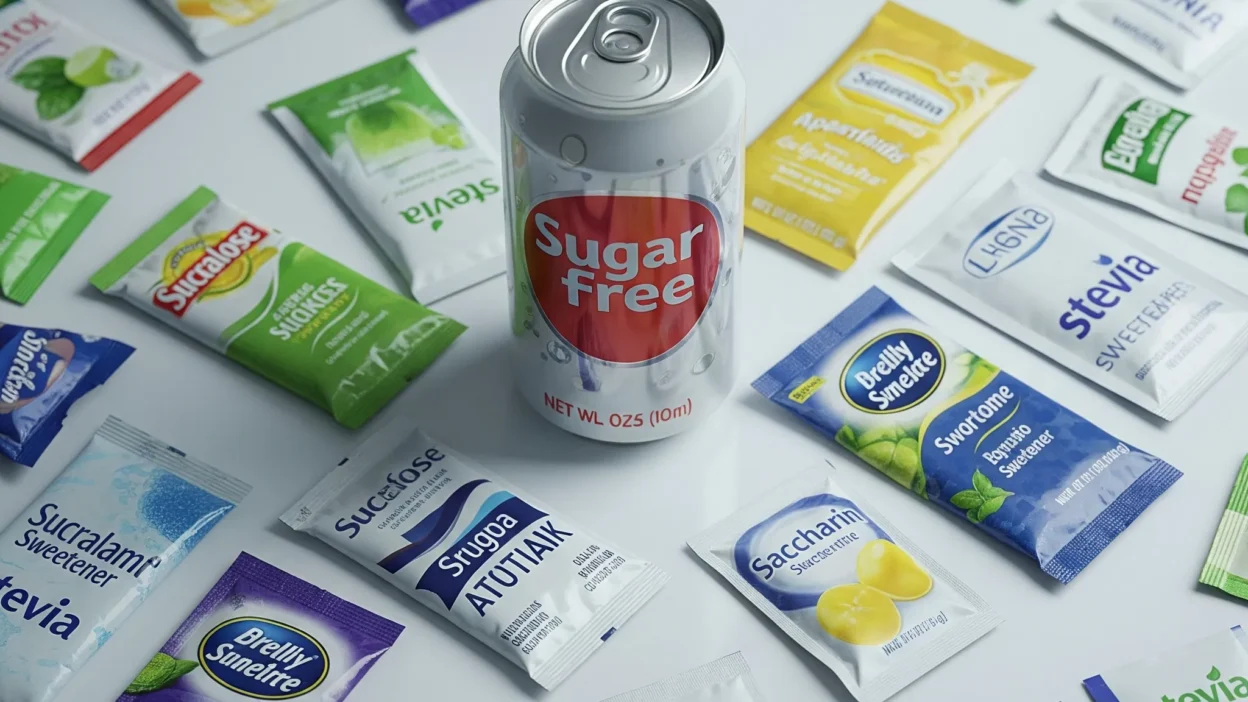In an era of increasing health consciousness, many individuals are looking for ways to reduce their sugar intake. This often leads them to the world of sugar substitutes. But what exactly are these alternatives, and what are the real health effects and safety considerations surrounding them? This article aims to demystify sugar substitutes, helping you understand their various types, potential benefits, and any concerns, so you can make informed choices for your diet.
The Rise of Sugar Substitutes in Our Diet
Added sugar has become a significant concern in modern diets, linked to weight gain and an increased risk of serious health problems like diabetes and heart disease. As a result, consumers are actively seeking alternatives. Sugar substitutes offer sweetness without the calories or the blood sugar spikes associated with traditional table sugar. However, it’s important to remember that even less processed sweeteners like honey and molasses are still forms of added sugar and contribute calories.
Types of Sugar Substitutes: A Closer Look
Understanding the different categories of sugar substitutes is the first step in evaluating their role in your diet.
Artificial Sweeteners: Calorie-Free Sweetness
Artificial sweeteners are synthetic compounds that provide intense sweetness with little to no calories. They are regulated as food additives by agencies like the U.S. Food and Drug Administration (FDA). Common examples include:
- Saccharin: One of the oldest artificial sweeteners. Early studies in the 1970s linked it to bladder cancer in rats, but subsequent research has shown these findings do not apply to humans.
- Aspartame: A widely used artificial sweetener. However, individuals with a rare genetic disease called phenylketonuria (PKU) must avoid aspartame, as it can lead to serious health problems for them.
- Sucralose: Another popular choice, often found in “sugar-free” products.
These sweeteners do not raise blood sugar levels, making them a common choice for individuals managing diabetes or weight.
Sugar Alcohols: A Different Kind of Sweetener
Sugar alcohols, such as sorbitol, xylitol, and erythritol, are carbohydrates that occur naturally in some fruits and vegetables. They provide fewer calories than sugar and do not contribute to tooth decay. While generally recognized as safe, consuming large amounts of sugar alcohols can lead to gastrointestinal irritation, including bloating, gas, and diarrhea. The amount that causes these symptoms varies from person to person.
Novel Sweeteners: Natural Alternatives
This category includes newer, often plant-derived, sweeteners that are gaining popularity.
- Stevia: Extracted from the stevia plant, its RebA extracts are 200 to 400 times sweeter than sucrose.
- Monk Fruit: Extracts from monk fruit are 150 to 200 times sweeter than sucrose.
Both stevia and monk fruit are known for providing a clean sweetness profile with fewer bitter aftertastes and are stable across different processing temperatures and pH conditions. They are often seen as less processed alternatives compared to artificial sweeteners.
Health Effects and Safety: What the Research Says
The safety of sugar substitutes is a topic of ongoing research and public discussion. Regulatory bodies like the FDA and food safety agencies worldwide establish acceptable daily intake (ADI) levels, which are considered safe for healthy individuals, including pregnant people, when consumed within these limits.
Potential Benefits of Sugar Substitutes
- Dental Health: Replacing added sugar with sugar substitutes can lower the risk of tooth decay and cavities.
- Blood Sugar Control: They do not raise blood sugar levels, which is beneficial for individuals with diabetes.
- Short-Term Weight Management: Because they are low in calories or calorie-free, sugar substitutes may help adults and children with overweight or obesity manage their weight in the short term.
Important Considerations and Ongoing Research
While generally safe in moderation, there are nuances and areas of ongoing study regarding the long-term health effects and safety of sugar substitutes:
- Long-Term Weight Management: It’s not definitively clear whether sugar substitutes help with weight management over the long term. A healthy diet and regular exercise remain paramount for sustained weight control.
- Gut-Brain Connection: Research is actively exploring how long-term use of sugar substitutes might affect the gut microbiome and its communication with the brain. Scientists are investigating whether they influence sweet cravings, hunger signals, and how the body manages blood sugar.
- Specific Health Conditions: As mentioned, individuals with phenylketonuria must avoid aspartame. Also, those with bowel diseases might find their symptoms flare up with sugar substitute consumption.
- Children: Dietary guidelines in the U.S. advise against giving sugar substitutes to children under 2 years old. More long-term studies are needed to fully understand their effects on children.
- Misleading Labels: A product labeled “low sugar” or “no sugar” might not always be the most nutritious choice. These products can still be highly processed and lack essential nutrients found in whole foods.

Making Informed Choices About Sugar Substitutes
The bottom line is that sugar substitutes can be a tool to help some individuals reduce their added sugar intake and manage weight in the short term. However, moderation is key. It’s generally safest to consume them in small amounts and perhaps only occasionally, rather than multiple times a day.
Prioritizing whole foods like fruits and vegetables, which offer a superior mix of nutrients, should always be the foundation of a healthy diet. If you frequently use sugar substitutes, consider gradually cutting back to retrain your taste buds away from intense sweetness, which can also make plain water seem less appealing.
For personalized dietary advice, especially if you have specific health conditions or concerns, always consult a registered dietitian or healthcare professional. They can provide tailored guidance based on your individual needs.
Conclusion
Navigating the world of sugar substitutes requires a balanced perspective. While they offer benefits like calorie reduction and blood sugar control, understanding their various types, potential side effects, and the nuances of ongoing research is crucial. By making informed choices, prioritizing whole foods, and practicing moderation, you can effectively manage your sugar intake and support your overall health and well-being. Remember, a truly healthy diet is built on a foundation of diverse, nutrient-rich foods, with sugar substitutes playing a supplementary role when used thoughtfully.





